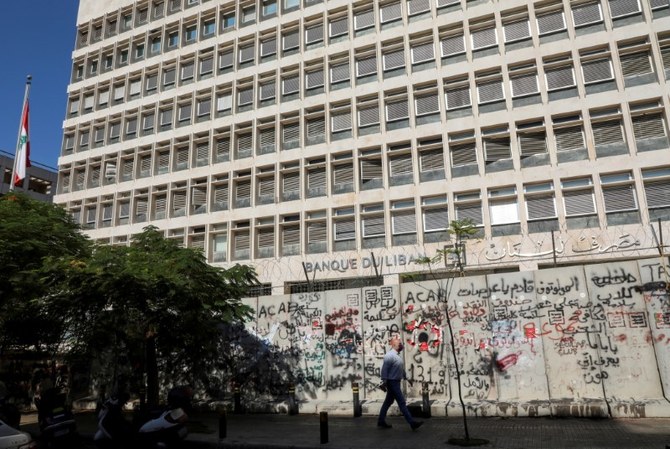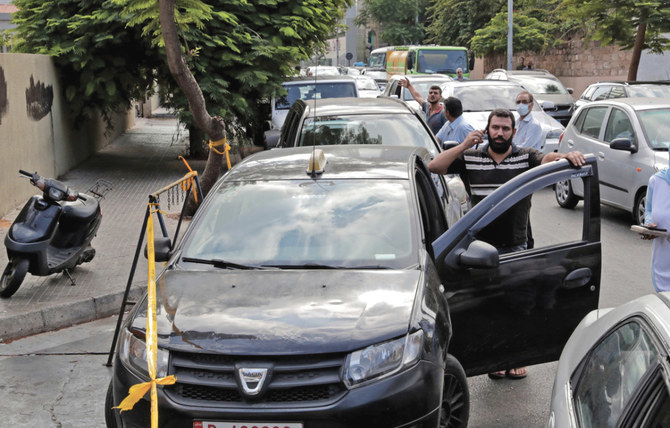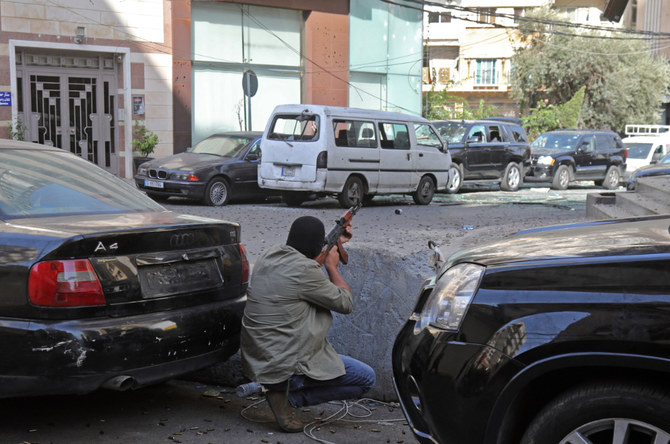طلاب يطردون السفير الاسرائيلي من جامعة بريطانية في حين ان تصرفاتنا وترددنا ادّوا الى طرد بعض سفرائنا من الدول الشقيقة ورحيل بعض سفرائهم من لبنان .. لاجل من ؟ وتنفيذاً لاي سياسة خارجية نفعل ذلك؟
Syria’s President Bashar al-Assad meets with United Arab Emirates Foreign minister, Syria’s President Bashar al-Assad meets with United Arab Emirates Foreign Minister
BEIRUT (Reuters) -The United Arab Emirates foreign minister met President Bashar al-Assad in Damascus on Tuesday, a sign of improving ties between Assad and a U.S.-allied Arab state that once supported rebels trying to overthrow him. Foreign Minister Sheikh Abdullah bin Zayed is the most senior Emirati dignitary to visit Syria in the decade since the eruption of a civil war in which several Arab states backed mainly Sunni Muslim insurgents against Assad. Washington, which opposes efforts to normalise ties with Assad or rehabilitate him until progress is made towards a political solution to the conflict, said it was concerned about the move by its ally the UAE.
The foreign minister led a delegation of senior Emirati officials that discussed bilateral relations and cooperation in a meeting with Syrian counterparts, a statement by the Syrian presidency said. The participants discussed exploring “new horizons for this cooperation, especially in vital sectors in order to strengthen investment partnerships in these sectors”, the statement said. Sheikh Abdullah underlined in his meeting with Assad “UAE’s keenness on the security, stability and unity of Syria,” UAE’s state news agency WAM said. He also stressed the “UAE’s support for all efforts made to end the Syrian crisis, consolidate stability in the country, and meet the aspirations of the brotherly Syrian people,” WAM reported.
by english.alaraby.co.uk — — Lebanese comedian Hussein Kaouk has fallen prey to an online harassment campaign on Saturday and Sunday, led by Hezbollah-affiliated media outlets. In response, the comedian’s fans posted hundreds of his videos on Twitter, promoting his work under the Arabic hashtag “Hussein Kaouk”. The social media storm against Kaouk picked up over […]

by Najia Houssari arabnews.com — BEIRUT: Lebanese banks are quietly letting employees go as they seek to close branches and reduce operational costs amid the collapse of the local currency, the Lebanese pound. It comes after the country’s central bank tightened regulations against commercial banks. While some are downsizing domestically, other banks are opting to sell assets abroad. The number of branches estimated to have closed ranges between 300 and 400 out of a total 1,100. Employees and contractors have been the first to feel the effects of the decisions. George Al-Hajj, president of the Federation of Syndicates of Bank Employees, said that 2021 has been “very hard” for bank employees in Lebanon, adding: “Although no statistics have been conducted to show the exact number of laid-off employees, their number does not exceed 4,500.” But more bank workers are expected to be dismissed in the near future. “We are in the middle of the storm, and the crisis will persist until Lebanon reaches an agreement with the International Monetary Fund on the restructuring process of the banking sector,” said Al-Hajj.
The number of employees of the banking sector in 2018 was estimated to be about 26,000, working for 61 banks. Since 2019, the sector has lost more than 17 percent of its workforce. Dr. Jassem Ajaka, an economic and strategic expert, warned that “up to 50 percent of bank employees will be laid off.” He told Arab News: “After the deterioration of the economic situation and the suspension of banking activities due to the decision to block financial transfers, the banking sector is no longer making profits. “Banks are not charities, and the reality is hard for everyone.” “The banking sector’s employees constitute a very important share of the middle class in Lebanon and eradicating this group from the economy will further harm Lebanese society.” Al-Hajj said: “In 2019, the federation saw this crisis coming and urged banks seeking to fire employees to inform the Ministry of Labor of their intentions. Some banks did, but others did not, and thus we do not know the exact number of laid-off employees.” He added: “The banks’ excuses for mass lay-offs were many: Sometimes it was because the bank was applying an early retirement system, sometimes it was a resignation at a request from the administration, and other times it was the termination of contracts due to economic reasons.”
by politico.com — Iraqi Prime Minister Mustafa al-Kadhimi has said he escaped unhurt after a drone attack on his home inside Baghdad’s high-security Green Zone. A drone laden with explosives struck the building, injuring six of his bodyguards in an apparent assassination attempt, officials said. Mr Kadhimi called for “calm and restraint from everyone”. The […]
The General Assembly of Beirut Bar Association held a meeting on Sunday at the request of the bar’s president Melhem Khalaf to implement the agenda in order to elect a new president and members of the Bar Council. However, the session was postponed for loss of quorum until November 21, pursuant to article 38 of […]
The General Assembly of Beirut Bar Association held a meeting on Sunday at the request of the bar’s president Melhem Khalaf to implement the agenda in order to elect a new president and members of the Bar Council. However, the session was postponed for loss of quorum until November 21, pursuant to article 38 of […]
احد مبارك …. ازاء الاضطرابات المتدحرجة من حولنا والانهيارات الارتدادية المتوالية في لبنان، علينا رفع الصوت السيادي في كل امر وفي كل حين . كما ينبغي تضمين بيانات المرشحين في النقابات، في الروابط المارونية وغير المارونية، في الاحزاب والجامعات والجمعيات، في النوادي والمنتديات وفي النيابة والبلديات وكل المناصب السياسية والاقتصادية، الاهداف التالية : السيادة والحياد، […]

By Bassam Zaazaa — arabnews.com — DUBAI: Lebanese expats are angry with the government in Beirut, fearing they could lose touch with their families if the Internet goes down because of the country’s ongoing energy and financial problems. The director general of telecoms company Ogero, Imad Kreidieh, warned on Thursday that Lebanon’s Internet service could go down within 10 days due to a lack of US dollars and insufficient quantities of the diesel needed to keep broadcast stations and backup generators operating. Electricite du Liban has only been able to secure power for a few hours a day for institutions and households since June, especially after a government subsidy on diesel was lifted, and fuel prices have continued to increase. Fuel is being made available only in dollars and at a black market rate. Kreidieh said that Ogero’s budget was in Lebanese pounds, which has been devaluing against the dollar, leaving the company unable to obtain the currency needed to purchase the required quantities of diesel.
The situation has led Lebanese expats in the Gulf and Europe to slam Beirut. UAE-based corporate banker Rana Arbid said that if the Internet collapsed, then so would she. She accused Beirut of being “irresponsible and useless” and blamed the ruling elite for jeopardizing people’s lives and the means of communication. “No Internet means no channels that connect people together, especially for us Lebanese living abroad,” she told Arab News. “Internet and mobile applications are our tools and means to communicate with our relatives and friends.” Najib Youssef, a Germany-based sales manager, blamed an “unproductive government and administration” for disconnecting the diaspora from their families. “This government is just like previous ones, it is an infertile cabinet. By far, it has failed at administering the country. It has participated in killing all service sectors including telecommunications. If this happens, and I guess it will, that means killing us (expats) emotionally and mentally as the Internet is the only means to communicate with people inside,” said Youssef, who feared his two children would miss out on video chats with their grandparents every weekend.

By Najia Houssari — arabnews.com — BEIRUT: The families of those arrested in the Tayouneh violence that occurred on Oct. 14, along with the families of those arrested in the Khalde incident that took place in early August, are up in arms over what they allege are the “biased actions” of the judicial authorities. The families have in recent days been reacting angrily about the lack of arrests of anyone associated with Hezbollah regarding either incident, “although the party and its gunmen were clearly involved in both.” The families are questioning whether the Lebanese military judiciary is turning a blind eye on those involved in the violence, or if the institution was shaken by the pressure Hezbollah exerts on every aspect of the state. Clashes had erupted in Khalde, south of Beirut, between Hezbollah members and residents affiliated to Arab tribes known as the “Arabs of Khalde,” during the funeral of Hezbollah official Ali Shibli. Two people died and several civilians were injured as a result.
The first acting military investigative judge, Judge Fadi Sawan, issued an indictment for the Khalde incident two days ago, referring 32 defendants, including 23 detainees from the Arabs of Khalde, to the military court for trial. However, he disregarded all Hezbollah affiliates who were involved in the clashes. Sawan requested that the defendants be tried for “forming an armed group with the intent of committing crimes against people, murder, attempted murder, inciting sectarian strife, vandalism and the use of unlicensed war weapons.” Hezbollah Secretary-General Hassan Nasrallah said that what happened in Khalde was “attempted murder, this massacre was committed by a gang.” He demanded that “all those involved, whose faces and names are well-known, be held accountable.”



